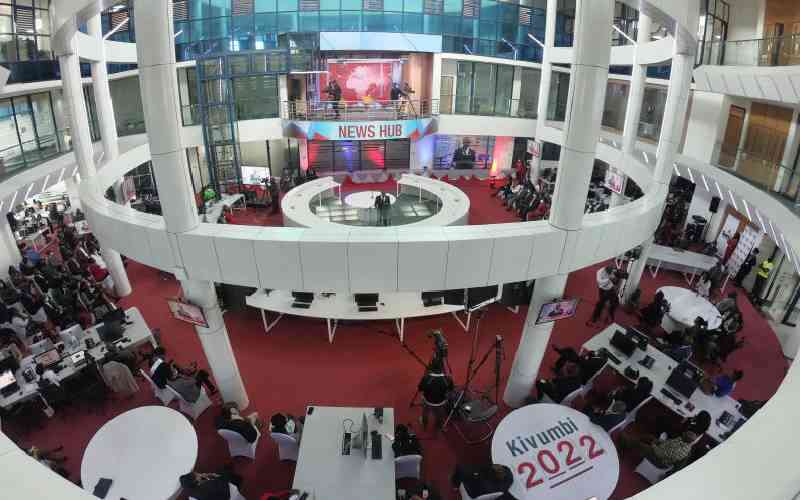The Media Owners Association (MOA) has requested the Government to postpone the start of digital migratiom from December 31 to April 30, 2015.
MOA indicated that a consortium of the Standard Group, Nation Media Group and Royal Media Services needs more time to put up the infrastructure required for the migration.
MOA chairman, who is also the Standard Group Chief Executive Officer Sam Shollei said they have since made the request to the Communications Authority of Kenya.
Mr Shollei said the three media houses “reflected internally” to decide on the appropriate day.
“It will give us five months to roll out the network and the infrastructure to carry our signal,” he said.
He maintained that the three media houses have supported digital migration because of its wide-ranging benefits.
“There is no reason to rush. We believe our request is reasonable,” he added.
The migration from analogue to digital broadcasting is to be implemented in three phases starting with Nairobi on December 31.
The second and third phases have been planned to kick off in February and March next year.
Analogue signals in Mombasa, Malindi, Nyeri, Meru, Kisumu, Webuye, Kakamega, Kisii, Nakuru, Eldoret, Nyahururu, Machakos, Narok and Londiani will be switched off on February 2, 2015.
Garissa, Kitui, Lodwar, Lokichogio, Kapenguria, Kabarnet, Migori, Voi, Kibwezi and Namanga will migrate on March 30, 2015.
Frequencies allocation
Last week, the Cabinet approved new dates, and a Cabinet sub-committee is set to review the allocation of frequencies.
In his statement, Shollei censured the Cabinet for approving the dates without consulting them.
“The date was not decided in consultation. It was a Cabinet decision,” he complained.
Stay informed. Subscribe to our newsletter
The switch-off means TV viewers who will not have replaced their existing TV sets with new models capable of receiving digital signals or purchased set-top boxes will not be able to view their favourite TV programmes.
Shollei remained grateful to CAK “and all those who struggled to ensure the three media houses are allocated a licence.”
“We have managed to get the license and have since written with great humility to CAK asking for more time,” he reiterated.
The Chinese company Pan African Network Group Kenya Limited (Pang) was allocated the lion’s share of channels. Standard Group, National Media Group and Royal Media got the least.
Pang, a company that is wholly owned by foreigners, was allocated 120 out of a total of 197 frequencies, which represents 61 per cent of the country's digital television broadcasting frequencies.
KBC and GoTV have been allocated 51 frequencies, representing 26 per cent, and Radio Africa 11, accounting for six per cent. The consortium of Nation Media Group, Standard Group, and Royal Media Services has been allocated only five per cent of the frequencies.
 The Standard Group Plc is a
multi-media organization with investments in media platforms spanning newspaper
print operations, television, radio broadcasting, digital and online services. The
Standard Group is recognized as a leading multi-media house in Kenya with a key
influence in matters of national and international interest.
The Standard Group Plc is a
multi-media organization with investments in media platforms spanning newspaper
print operations, television, radio broadcasting, digital and online services. The
Standard Group is recognized as a leading multi-media house in Kenya with a key
influence in matters of national and international interest.
 The Standard Group Plc is a
multi-media organization with investments in media platforms spanning newspaper
print operations, television, radio broadcasting, digital and online services. The
Standard Group is recognized as a leading multi-media house in Kenya with a key
influence in matters of national and international interest.
The Standard Group Plc is a
multi-media organization with investments in media platforms spanning newspaper
print operations, television, radio broadcasting, digital and online services. The
Standard Group is recognized as a leading multi-media house in Kenya with a key
influence in matters of national and international interest.






